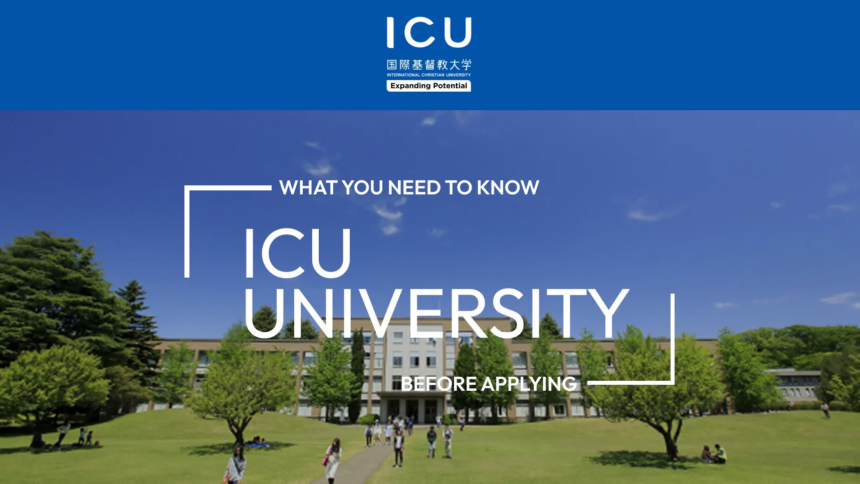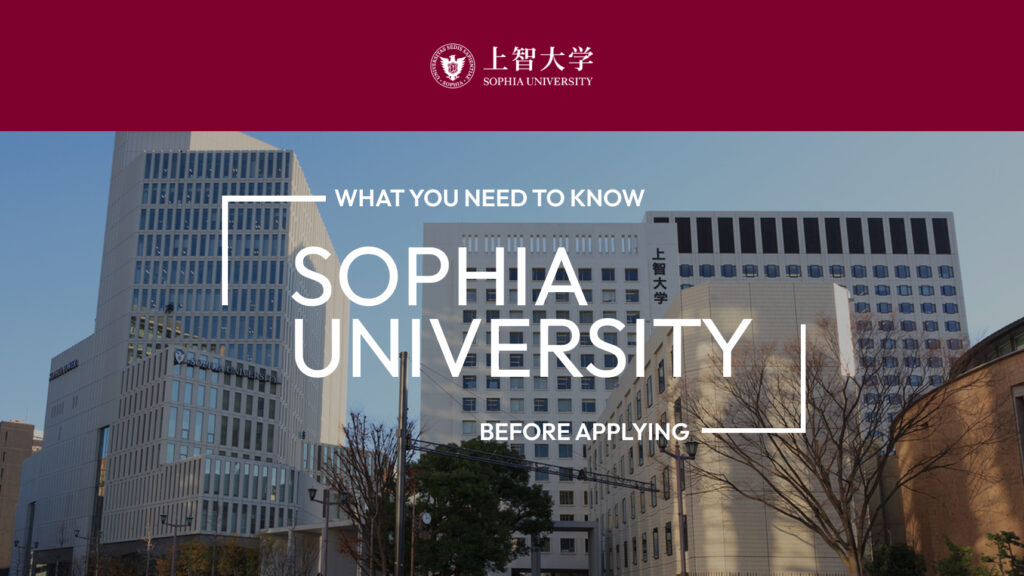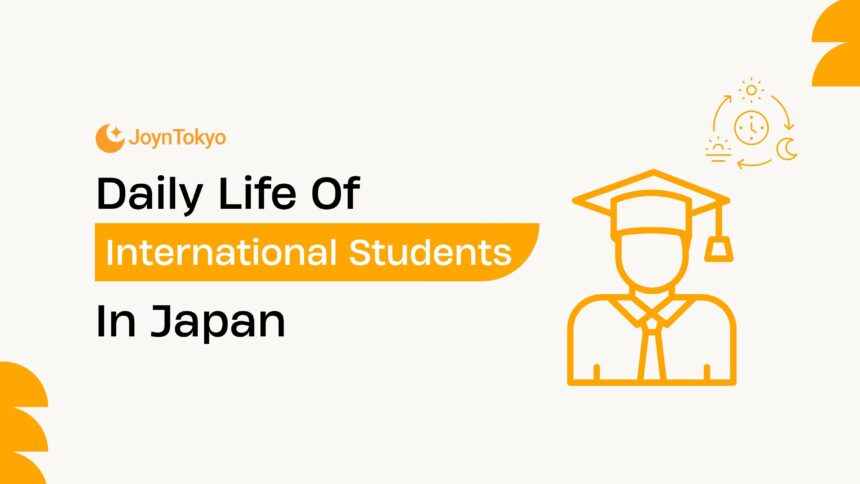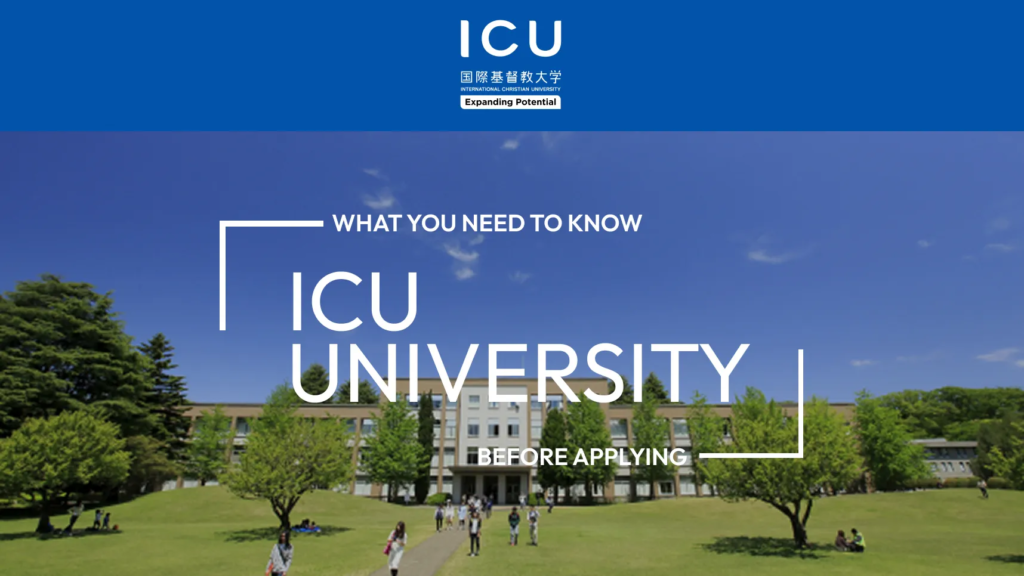
International Christian University (ICU) is a private liberal arts university known for its bilingual curriculum and global focus. Situated in Mitaka, Tokyo, ICU provides a tranquil environment that fosters academic excellence and cultural exchange. This article will explore the university’s distinctive features, from its academic approach to student life, to help prospective international students understand why ICU might be the ideal choice for their studies in Japan.
Overview of International Christian University
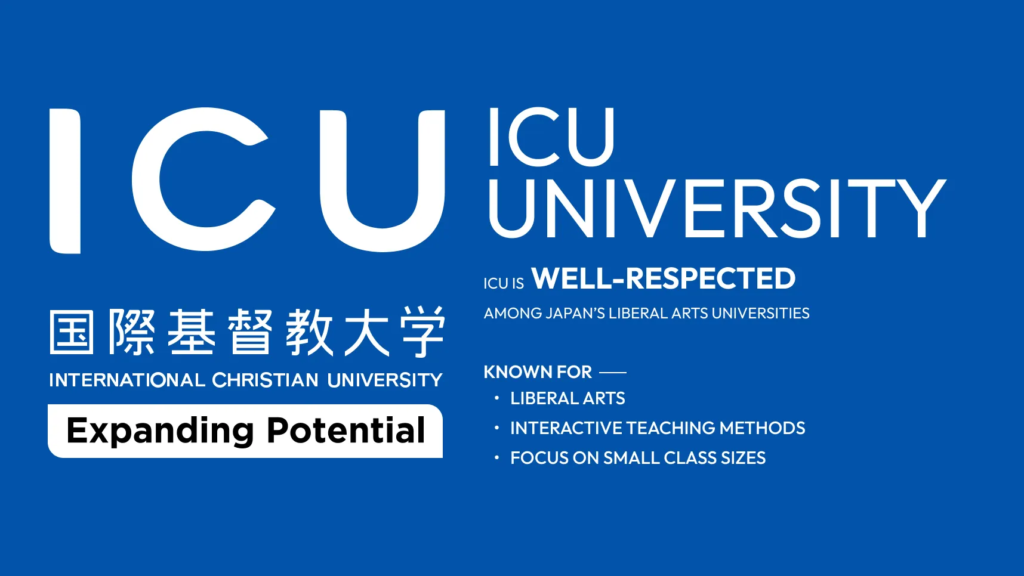
ICU was founded in 1953 with a mission to cultivate global citizens through a strong liberal arts education. Many of its classes are conducted in English, while Japanese language study is also emphasized. This balanced approach allows students to grow in a multilingual environment and gain the cultural fluency needed for success in today’s interconnected world.
Global Reputation and Rankings
ICU is well-respected among Japan’s liberal arts universities, renowned for its interactive teaching methods and focus on small class sizes. Faculty members often hold advanced degrees from top institutions across the world, reflecting the university’s emphasis on high-level research and cross-cultural expertise. While ICU may not always place at the top of global league tables, its consistent performance in rankings that highlight liberal arts education and international engagement underscores its solid reputation.
Distinctive Academic Philosophy
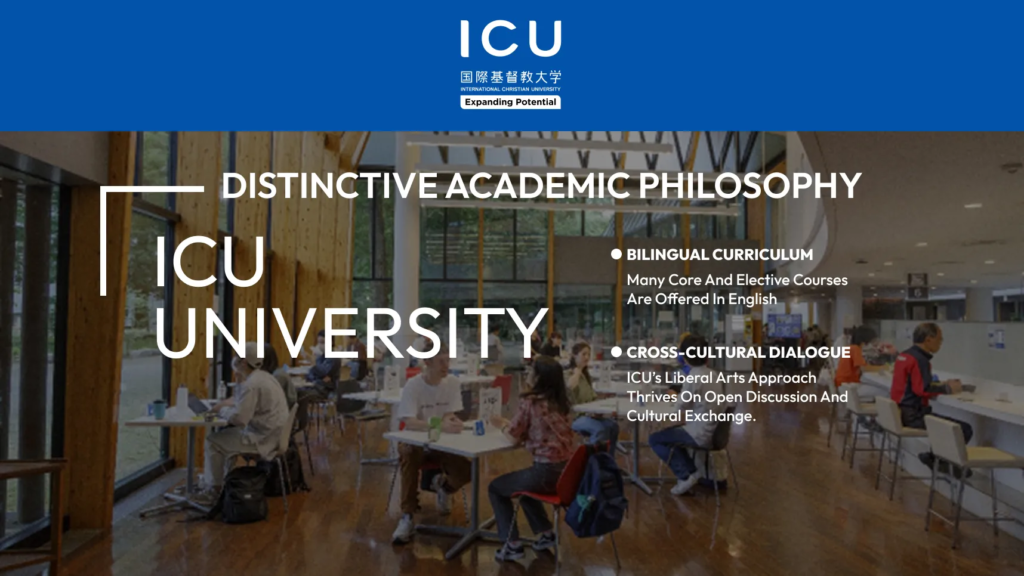
At the heart of ICU’s mission is the integration of diverse perspectives within a liberal arts framework. The curriculum encourages students to analyze global issues critically, drawing on both Western and Japanese academic traditions. By engaging in classes taught in English and Japanese, students develop nuanced insights into different cultural contexts.
Bilingual Curriculum
One of ICU’s key features is its bilingual education. Many core and elective courses are offered in English, making the university highly accessible to non-Japanese speakers. At the same time, Japanese language courses enable students to immerse themselves more fully in local culture and everyday life.
Cross-Cultural Dialogue
ICU’s liberal arts approach thrives on open discussion and cultural exchange. Classes typically involve active participation, group projects, and presentations. This dynamic atmosphere fosters critical thinking and mutual understanding, skills that are invaluable in multilingual and multicultural settings.
Location and Campus Environment
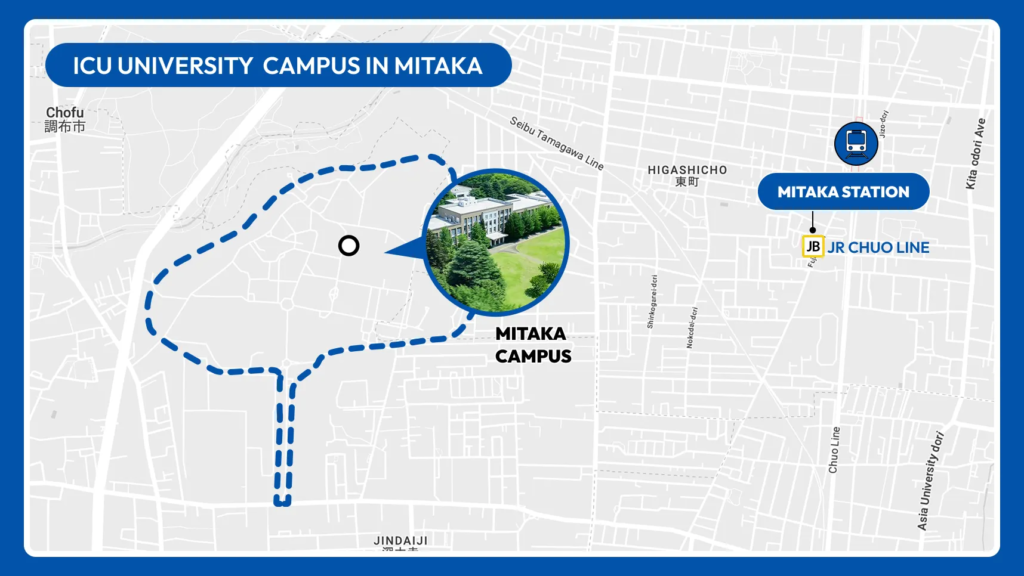
Located in the residential area of Mitaka, ICU’s campus is renowned for its tree-lined pathways, open fields, and peaceful surroundings. This blend of natural beauty and modern academic facilities provides a focused atmosphere for study and research, away from central Tokyo’s busy streets, yet still within convenient reach of the city’s cultural and professional opportunities.
Access and Nearby Stations
- Musashi-Sakai Station (JR Chuo Line): From here, students can take a short bus or taxi ride to campus.
- Mitaka Station (JR Chuo Line): Also accessible via bus or taxi.
Some students prefer to bike or walk to campus, enjoying the local residential scenery along the way.
Academic Programs and Admissions
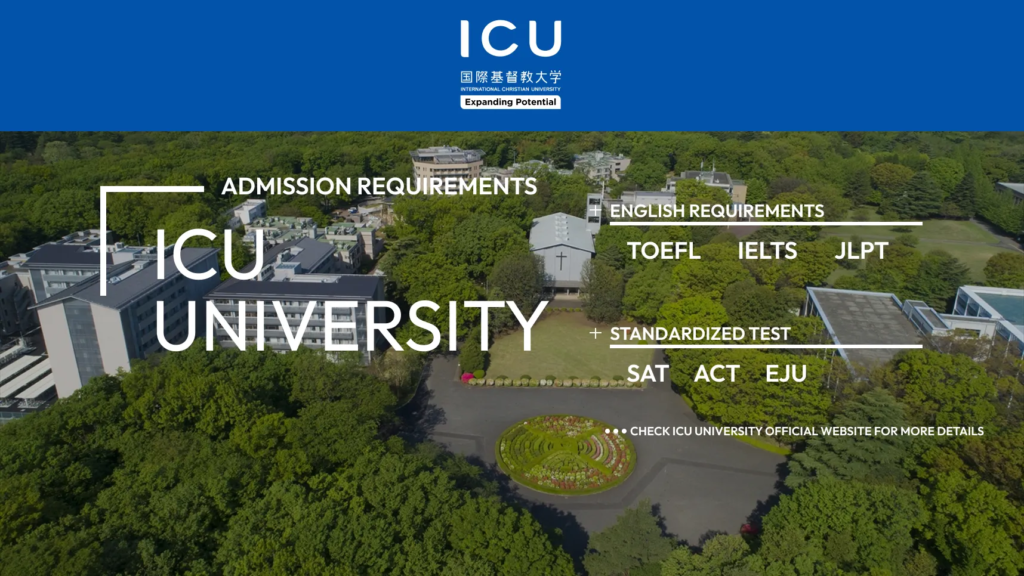
ICU offers a wide range of undergraduate and graduate programs, covering fields such as International Relations, Economics, Comparative Culture, and more. The university’s emphasis on small class sizes ensures that each student can engage in thoughtful discussion and benefit from close mentorship by faculty.
Popular Fields of Study
Many international students choose majors like International Relations or Comparative Culture, both of which leverage the university’s global focus. The liberal arts curriculum prepares graduates to navigate complex international issues, whether they pursue careers in diplomacy, business, or academia.
Admission Process
Applicants can apply through various pathways, including full-degree enrollment or exchange programs. Requirements often include standardized test scores (e.g., SAT/ACT), language proficiency tests (e.g., TOEFL/IELTS), and a personal statement. Because ICU highly values diversity and global outlook, the admissions office looks for candidates who are passionate about cross-cultural understanding and academic rigor.
Language Requirements
- English Proficiency: TOEFL or IELTS scores may be required from non-native speakers of English.
- Japanese Proficiency: Depending on the program, EJU (Examination for Japanese University Admission for International Students) scores might be necessary.
ICU’s dual-language environment means that English competence is crucial, while Japanese skills open more academic options and deepen cultural immersion.
Student Life and Community
ICU prides itself on a vibrant, inclusive community. International students find a welcoming campus where diverse perspectives and experiences are celebrated. Extracurricular activities, student clubs, and dormitory life all contribute to a sense of belonging and shared growth.
Clubs and Circles

From sports teams to cultural appreciation societies and music circles, student clubs at ICU cater to a broad range of interests. Many international students join language exchange or global affairs groups, building friendships and refining their cross-cultural communication skills.
IEE (International Office)
IEE is an official community in ICU which provides opportunities for international and local students through various social activities. They manage study abroad programs and other events in Japan, so that foreign students can have rich interactions with local people and culture.
Housing and Dormitories

On-campus dormitories vary in style, offering both shared or private options. Living alongside peers is promoted because it fosters a supportive environment that encourages academic collaboration and social engagement.
Health and Counselling Services
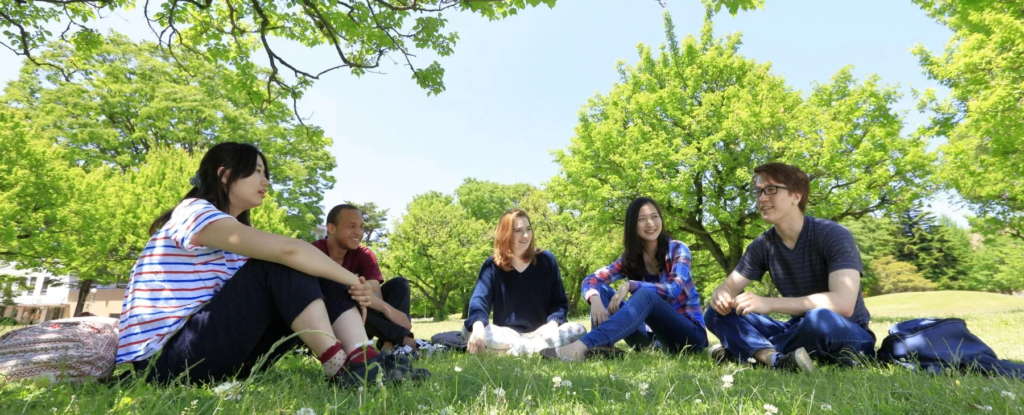
ICU provides comprehensive support, including routine health check-ups, medical referrals, and counseling. Professionals are available to address issues such as stress and cultural adaptation, ensuring students’ well-being throughout their academic journey.
Tuition and Financial Aid
Studying at ICU involves costs similar to other private universities in Japan. Prospective students should prepare for tuition, enrollment fees, and living expenses. While exact figures may change yearly, the annual undergraduate tuition is generally around ¥1,060,000, with additional fees for facilities and enrollment.
Scholarship Opportunities
ICU collaborates with various organizations, including the Japan Student Services Organization (JASSO), to offer merit-based scholarships, need-based grants, and research funding. International students should review these opportunities early in the application process to help offset tuition and living costs.
Important
Scholarship details and requirements can change from year to year. Always refer to the official ICU website or JASSO for the latest information.
We Handle Everything Required for a Successful Relocation to Japan
Arrive in Japan ready to live long-term. No scrambling. No confusion. Step into Japan with your life already lined up.
Book Your Consultation →✓ English-speaking support ✓ Successful relocations ✓ No hidden fees
More Must Check Universities in Japan
Check out our other related articles to learn best global universities in Japan!

